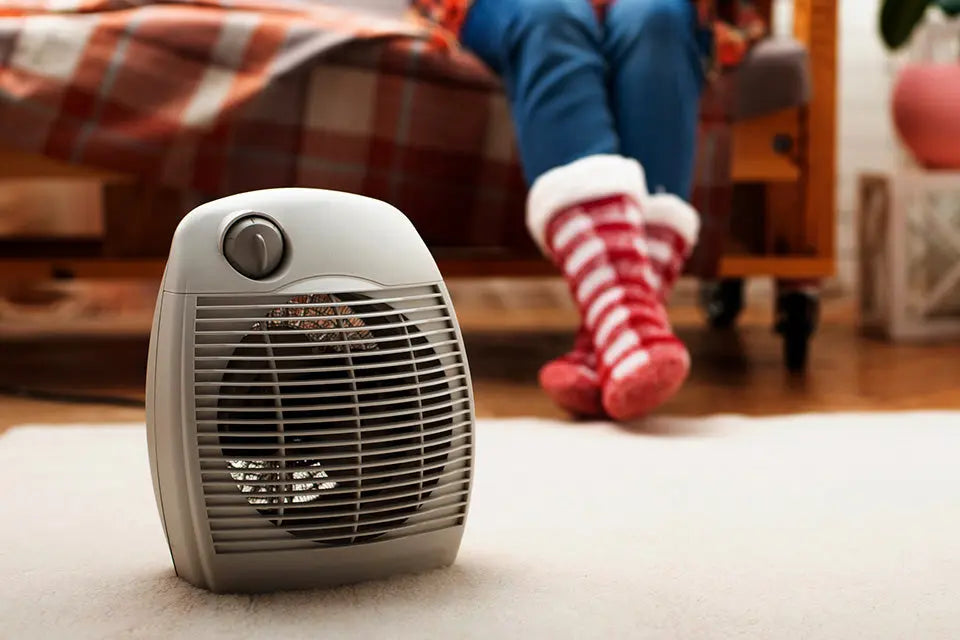Do Electric Heaters Use A Lot Of Electricity?
Electric heaters are the most popular choice to use in cold weather to keep your house warm and cozy. They are versatile, easy to use, portable and can give instant warmth. However, many people wonder whether electric heaters consume a lot of electricity and how they affect energy bills. An electric heater is the first choice of everyone who wants an instant heating system. Most electric heaters are energy efficient and are safe to use both indoors and outdoors. But it also depends on their efficiency, energy consumption and the way you use it.
Energy Consumption:
The amount of electric energy an electric heater uses depends on its wattage and how long it operates. Most electric heaters range from 500 watts to 1500 watts. The higher the wattage the more electricity the heater consumes. If a 1500-watt heater runs for an hour it will use 1.5 kilowatt-hour of electricity. If the cost of electricity is 15 cents per kWh, then running the heater for an hour would cost approximately 22.5 cents. If used for 8 hours a day, the daily cost would be around 1.80$ and over a month it could add up significantly.
How Do Electric Heaters Work?
The way of electricity to produce heat is pretty simple, it works by converting electric energy into heat energy. They use heating elements that are made up of metal or ceramic. Which warms up when electricity passes through it. A fan in some models helps distribute the warm air, while others rely on radiant heat to warm nearby objects and people. Unlike gas or oil heaters, electric heaters do not produce smoke or need ventilation which makes them a cleaner and safer option for indoor use. It is also a healthy option as it doesn’t produce harmful smoke that damages health and also pollutes the environment.
Factors That Affect Electricity Usage:
Many factors influence how much electricity an electric heater consumes. The size of the room being heated is an important factor. Larger rooms need more energy to warm up compared to smaller spaces. The insulation of the home also plays a role. Well-insulated homes retain heat better and require less heating. Additionally, the outdoor temperature affects how much heating is needed, colder weather increases the demand for heat which leads to higher electricity use and bills. You have to make sure the proper and suitable warm or heat for your house or outdoors.
Efficient Ways To Use Electric Heaters:
There are some ways to use electric heaters efficiently. Here are some tips about that:
The first one is to use the thermostat-controlled heater. Some heaters have built-in thermostats that automatically turn the heater off when the desired temperature is reached. This prevents unnecessary energy use. Second, only heat the space you need. Instead of heating an entire house, use the heater in the room you occupy most. This targeted heating approach can help lower electricity costs. Third, keep your windows and door closed while the heater is on. It prevents warm air from escaping and cold air from entering, making the heater more effective. Fourth, use insulation and curtains. Proper insulation in walls, floors and ceilings helps retain heat. Thick curtains can also offer warmth inside, reducing the need for continuous heating. Fifth, lower the temperature slightly. Setting the heater at a moderate temperature instead of the highest setting can reduce power consumption while still providing comfort. Sixth, use a timer. Many electric heaters come with timers that allow you to schedule heating times. This ensures that the heater runs only when needed, preventing excessive energy use.
Electric Heaters & Other Heating Methods:
Electric heaters are supposed to use more electricity compared to other heating systems like central heating systems or gas heaters. A central heating system, which distributes heat through vents or radiators may be more efficient for warming an entire home. Gas heaters often cost less to operate because natural gas is usually cheaper than electricity. However, electric heaters can be more effective for heating small spaces or supplementing an existing heating system. Electric heaters are 100% efficient at the point of use but costly to operate. Gas furnaces, with 80-98% efficiency, offer lower running costs in cold climates. Heat pumps are highly efficient, transferring rather than generating heat making them cost-effective long-term. Wood and pallet stoves provide rustic heating but require fuel storage and maintenance. Environmentally, heat pumps are the cleanest especially with renewable energy while gas and wood options produce emissions. Electric heaters are best for small spaces, gas furnaces for whole-home heating, heating pumps for moderate climates and wood stoves for off-grid or backup heating.
Is Cost Effective or Not?
Electric heaters can be cost-effective when used properly. If you only need to heat a single room for a few hours, an electric heater may be a better option than turning on a central heating system. However, if you rely on electric heaters as the main heating source for an entire home, your electricity bill may increase significantly, comparing energy costs and considering energy costs and considering alternative heating options can help determine the best solution for your needs. Electric heaters are generally not cost-effective for whole-home heating due to high electricity costs. While they are 100% efficient at converting electricity into heat, electricity is often more expensive than natural gas making operational costs higher. However, they can be cost-effective in small spaces or for supplemental heating such as warming a single room rather than the entire house.
Alternative Heating Method:
There are several alternative heating methods, each with unique advantages depending on cost, efficiency and environmental impact. Heat pumps including air-source and geothermal models are among the most efficient as they transfer heat rather than generate it, making them ideal for long-term savings. Gas furnaces powered by natural gas or propane offer powerful heating at lower operating costs but rely on fossil fuels. Wood and pellet stoves provide a renewable option, though they need fuel storage and regular maintenance. Solar heating, whether passive or active is highly sustainable but depends on sunlight and installation costs. Radiant floor heating offers comfortable, energy-efficient warmth especially when paired with geothermal or solar systems though installation can be expensive. Oil and propane heating systems are common in rural areas providing strong heat but at a higher cost and environmental impact. The best choice depends on factors like climate, budget and sustainability goals.
Conclusion:
Electric heaters do use a significant amount of electricity especially when used for long hours or to heat large spaces. However, they can be an effective and convenient heating option when used efficiently. By following energy-saving tips and considering alternative heating methods, you can keep your home warm without extremely increasing your electricity bills. Understanding how electric heaters work and how to use them wisely can help you make informed decisions about your home during the colder months.






